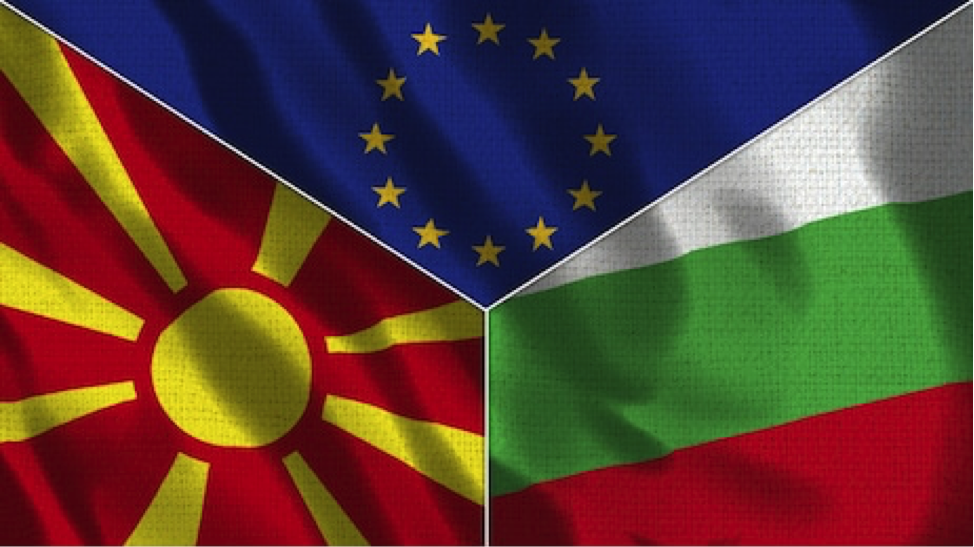On March 25, 2020, the Council of the European Union issued a written procedure providing updates regarding the enlargement process and potential inclusion of Macedonia and Albania within the EU. In this brief four-page procedure, Bulgaria details several conditions required to be met before approving Macedonia’s future negotiating framework for EU accession. Among these conditions, the most notable is a peculiar implementation of the “language clause” previously utilized in both the Macedonia – Bulgaria Joint Declaration of 1999 and 2017 Friendship Treaty. More specifically, Bulgaria requested the following:
“Implementation of the “language clause” agreed between Sofia and Skopje in the agreements of the Republic of North Macedonia with the EU, including in the future Negotiating Framework. Thus, the linguistic norm spoken by the population of the Republic of North Macedonia should only be referred to as “the official language of the Republic of North Macedonia” in EU documents/positions/statements, including the future Negotiating Framework. No document/position/statement by the EU and its institutions can be interpreted as recognition of the existence of a separate so-called “Macedonian language”.[1]
In simpler terms, Bulgaria is declaring that the language clause utilized in previous agreements permits an omission of the Macedonian language from future EU correspondence and records. However, this assertion does not seem well-grounded. Even when considering Macedonia’s controversial name change, the language clause itself does not imply that the country’s official language must be called “The official language of the Republic of North Macedonia” instead of the “Macedonian language”. For clarity, the language clauses from both the 1999 Joint Declaration and 2017 Friendship Treaty have been provided below:
Joint Declaration of 1999
“Done at Sofia on 22 February 1999 in two original copies, each one in the official language of both countries, the Bulgarian language, in accordance with the constitution of the Republic of Bulgaria and the Macedonian language, in accordance with the constitution of the Republic of Macedonia, each text being equally authentic.”[2]
Friendship Treaty of 2017
“Signed in two original copies, each in the official languages of the Contracting Parties – Macedonian language, in accordance with the Constitution of the Republic of Macedonia and Bulgarian language, in accordance with the Constitution of the Republic of Bulgaria, with both texts equally important.”[3]
As shown by the above language clauses from 1999 and 2017, the wording states that documents will be printed in the official language of each party in accordance with its constitution – and in both cases the Macedonian and Bulgarian languages are listed. Thus, there is misapplication of the language clause on the part of Bulgaria. Many may wonder why this issue has come up, and the reality is that historical disagreements and political maneuvering have played a factor. Bulgaria has not officially recognized the Macedonian language and continues to deny basic rights to ethnic Macedonians in Bulgaria, often rejecting their existence. For example, a 2019 U.S. State Department Human Rights Report on Bulgaria noted the following: “Authorities continued to deny registration of the Macedonian activist group OMO Ilinden, despite a January judgment and 10 prior decisions of the European Court of Human Rights that the denials violated the group’s freedom of association.”[4]
Stepping back to the language issue, even after contentious passage of the Prespa Name Change Agreement between Macedonia and Greece, it did not cause Macedonia to alter its official language. Thus, Bulgaria has little substance to support an exclusion of the Macedonian language from being mentioned in EU documents. Claiming that “No document/position/statement by the EU and its institutions can be interpreted as recognition of the existence of a separate so-called “Macedonian language” is a significant provocation and goes against the concept of “good neighborly relations” often championed by the Bulgarian government. One fundamental reason the Bulgarian argument lacks merit is because the Macedonian language has been widely recognized for several decades. Additionally, a denial of the Macedonian language by one country should not diminish Macedonia’s presence within the EU. Trying to impose such censorship of the Macedonian language across the EU not only shows poor form but further strains an already delicate relationship between the two countries. Macedonia and Bulgaria have previously addressed their disagreements through the integration of the language clause within the 1999 and 2017 agreements mentioned earlier. With this clause, Bulgaria has been able to bypass official recognition of the Macedonian language, and Macedonia has been able to maintain relative stability with an important strategic partner – even if the actual agreements have been unjust in some respects (e.g. no protected minority status for ethnic Macedonians in Bulgaria who do not have Macedonian citizenship).
To presume that the language clause now changes focus to include only the new (and many would argue illegitimate) name, “The official language of the Republic of North Macedonia”, but not the language recognized by the UN and Prespa Agreement is counterintuitive. Perhaps more curious is the fact that an additional condition set forth by Bulgaria is the “Full implementation of treaties between the Republic of North Macedonia and EU Member States”. This would imply that the Prespa Agreement between Macedonia and Greece (an EU member state) must be fully implemented. If so, then the following clause within Article 1(3)(c) of the Prespa Agreement cannot be disregarded:
Article 1(3)(c)
“The official language of the Second Party shall be the “Macedonian language”, as recognised by the Third UN Conference on the Standardization of Geographical Names, held in Athens in 1977, and described in Article 7(3) and (4) of this Agreement.”[5]
As shown within Article 1(3)(c), the Prespa Agreement recognizes the Macedonian language, as previously established by the UN in 1977. This further accentuates Bulgaria’s misstep – it cannot simultaneously require implementation of the Prespa Agreement while also lobbying against the Macedonian language, a key feature within the Prespa Agreement.
There is a clear contradiction between the Prespa Agreement and recent demands made in the EU written procedures from March 25, 2020. This situation displays the vast challenges for a smaller country like Macedonia who is simply vying to become more stable and economically secure. Macedonia has been forced to sacrifice vital national interests to unlock the doors to NATO and the EU, yet still finds itself being taken advantage of by neighboring countries. This situation poses important questions regarding what obstacles lie ahead for Macedonia and whether EU membership is ultimately worth the tradeoff. As has often been the case, the principles of self-determination and mutual respect from neighboring countries seem to be overlooked in the case of Macedonia, and this can only contribute to increased tension and instability in the Balkans.
—
Any opinions or views expressed in articles or other pieces appearing in UMD Voice are those of the author alone and are not necessarily those of the United Macedonian Diaspora and its young leaders’ program Generation M; the appearance of any such opinions or views in UMD Voice is not and should not be considered to be an endorsement by or approval of the same by UMD and Generation M.
[1] “Council of the European Union Written Procedure”. Council conclusions on Enlargement and Stabilisation and Association Process the Republic of North Macedonia and the Republic of Albania. March 25, 2020. https://www.parlament.gv.at/PAKT/EU/XXVII/EU/01/66/EU_16606/imfname_10969905.pdf
[2] “Review and Implementation of The Concluding Document of The Twelfth Special Session of The General Assembly Strengthening of Security And Cooperation In The Mediterranean Region Sustainable Development And International Economic Cooperation.” United Nations General Assembly 53rd Session. March 1999. https://undocs.org/pdf?symbol=en/A/53/855
[3] “The Text of the Agreement on Friendship, Good Neighborliness and Cooperation between the Republic of Macedonia and the Republic of Bulgaria”. July 2017.
[4] “2019 Country Reports on Human Rights Practices: Bulgaria”. U.S. Department of State. 2019. https://www.state.gov/reports/2019-country-reports-on-human-rights-practices/bulgaria/
[5] “The Prespa Agreement” Full text of the Final Agreement on Resolving the Macedonian-Greek Name Dispute and Strategic Partnership. 2018. https://vlada.mk/node/17422

